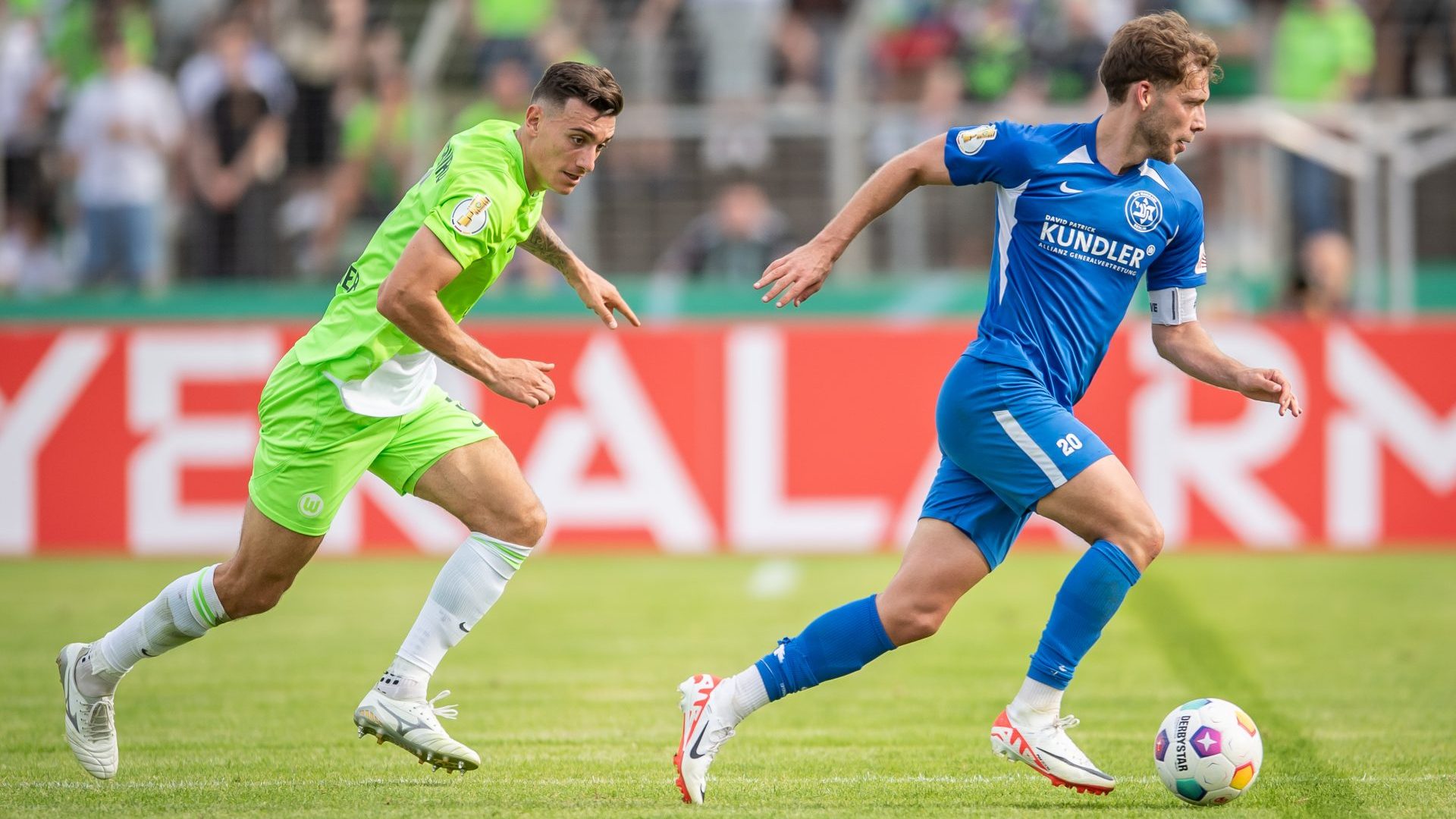Ordinarily, the final of the Berlin Cup, one of 21 regional knock-out football competitions across Germany, would not lead to headlines from Argentina to Israel. But when Makkabi Berlin beat Sparta Lichtenberg 3-1 in June it did just that. Because the victory made the fifth-tier side the first Jewish club to qualify for the DFB-Pokal – the country’s premier cup.
When the cup was founded in 1935 Jews were forbidden from taking part. Three years later, Makkabi itself, like all Jewish sports organisations, was closed. The club had been a huge part of the community, with around 40,000 members in the 1920s (today it has around 600). It was only in 1970 that it was reformed by Holocaust survivors.
“So it had a lot of ups and downs in the last more than 100 years, which is very much related to the history of Germany in general,” says club director Michael Koblenz, when I speak to him from Berlin via Zoom. Makkabi’s history is Berlin’s, and Germany’s.
“Within the Jewish community in Berlin, Makkabi – it’s basically the sports pillar of the community,” says Koblenz, a fast-speaking entrepreneur. “There are no other sports organisations within the Jewish community. So whoever wants to do sports within a Jewish environment will become part of Makkabi.” It is culturally Jewish, rather than religious.
The story became even bigger when, for their first-ever game in the DFB-Pokal, Makkabi were drawn against one of German football’s giants – VfL Wolfsburg, winners of the trophy as recently as 2015. Suddenly this tiny club was inundated with interview requests from across the globe – difficult when you have just one full-time employee.
“The media attention we had in the past eight weeks, basically, in advance of that game, shows that this had serious historic elements and there was a story to be told,” reflects Koblenz. “It’s more of an emotional significance, especially to the Jewish community in Germany. Most of us can tell stories about ancestors who died in this country and now we are here, we represent a certain self-confident and vital and positive Jewish life in Berlin.
“Working on this was a challenge because this club has just one full-time employee. So the minute we understood that we would be playing the first round of the DFB-Pokal we created some sort of team of eight people who are all in their jobs who said ‘hey, we want to become part of this organisational team’. And this was a lot to cope with. This was not only the media, it was organising the event, the stadium, the security, the VIP tent we had. It came to a very big surprise to us that the media attention was as big as it was. We did not expect that.”
Despite being a Jewish organisation, not all of Makkabi’s players are themselves Jewish – just three of the matchday squad who took part in the historic game against Wolfsburg were Jews.
“One does not need to be Jewish to become part of our club,” says Koblenz. “And this is something that we want to represent, actually. We never had the ambition to be a pure Jewish organisation. We’re open to everybody.”
But, I wonder, do these non-Jewish players – who count among them Muslims (including Kiyan Soltanpour, of Iranian heritage) and Christians – understand the significance and history of the club whose badge they wear?
“Listen, they understand that we are not a regular German club,” says Koblenz. “They understand that there’s a certain heritage, they understand there’s a certain history the club has.
“Does every player feel the same about that? I don’t know. But we make sure that they’re at least aware of the fact that they’re playing for a Jewish club. So we had Holocaust survivors to visit the team, speak about the Holocaust. We had one of the people who founded the club in 1970 visiting the team, speaking. So every team member does understand what club he’s playing for. Is it for them as emotionally touching as to me, who is Jewish? Most probably not.”
Antisemitism still exists. Last November two players from neighbouring Hertha 06 were banned for two years after a number of antisemitic incidents on the sidelines of a youth game against Makkabi (Hertha’s chairman, also the father of one of the banned players, would double down, telling a TV reporter: “My son will hate the Jews for the rest of his life”)
“The higher a team plays in terms of the league it’s playing in, the less problems we have. I don’t know why,” says Koblenz. “It’s not like every week, but we do have these issues and this is something we need to cope with but, to be frank, also something society needs to cope with because it’s a societal problem, not only ours.”
There would be no fairytale ending for Makkabi. Might – and the millions of Volkswagen, Wolfsburg’s backers – won out, and the Bundesliga side beat the team from Berlin comfortably, 6-0.
But, I ask Koblenz, did he think Wolfsburg’s millionaire superstars appreciated the enormous history and heritage of the side they were taking on, the very special nature of his club?
“They couldn’t care less, I think,” he laughs.











